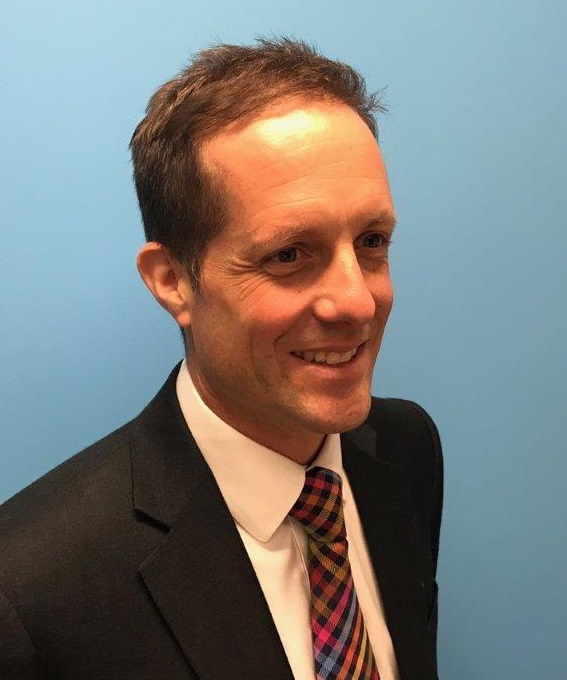Jobseekers – You Really Do Need To Be Yourself In The Interview

“Just be yourself” is advice that might have served you well on your first day of college, or when you went to that party where you didn’t know anyone. But can you really be yourself in an interview situation?
Up until now, you may have adopted an “interview persona” of sorts, a version of yourself which would be unrecognisable to the people who know you best. For example, you might have used clichéd expressions which you would never usually say in day to day life, or tried to hide your outgoing and talkative or conversely introverted and reflective personality. This could have been with the intention of fitting in with the interviewer’s personality or perceived company culture, and whilst I understand this reasoning, I would also advise against it.
Don’t be mistaken, you can’t lose all of your inhibitions, and I wouldn’t suggest strolling into the interview room like you would your friend’s house, greeting them with a “hey mate” and a high five. It’s all about striking the right balance between being professional and being yourself, which I will come to. But first, let me explain why it is so important to be yourself during the interview.
The interviewer needs to meet you – the real you
First and foremost – if you aren’t yourself, then the interviewer won’t get a true idea of whether you are a good cultural fit for the team and company. Company culture is defined by the people, the dynamics at play between colleagues, the way the company handles challenges and celebrates successes, plus the core values which every employee is expected to live and breathe whilst at work. Unsurprisingly, studies have shown that if a new hire is a poor cultural fit, they will most likely struggle with their workplace wellbeing, and this is often a main reason that they choose to leave an organisation.
Think of the company culture as being the personality of the company. You wouldn’t choose to spend a large portion of your time with a personality that you clashed with, so why would you risk working for a company which is the wrong cultural fit for you?
In addition, putting on a different persona is tiring at the best of times, and in an interview, your focus and energies should be channelled into showing off your strengths and skills, whilst gauging whether this opportunity is right for you. With that in mind, how can you be yourself in the interview room?
Embrace your best traits
As I say, you can’t let your guard down completely and be overly familiar in the interview, but you can channel some of your most suitable personality traits into your performance. This starts with identifying which of your personal attributes would be beneficial to the role.
Revisit your research about this opportunity, particularly any information you have surrounding the required skills for the job, plus the company culture and values. Where might your personality traits overlap with what the hiring manager is looking for? For example, you might be applying for a job where strong interpersonal skills are a must, and you have always found yourself to be a great listener who can build up trusting relationships with people.
So you know who you are and what you can personally bring to this role, but how can your interview performance reflect this?
Adapt your interview answers
Let’s start with your interview answers. “How would your colleagues describe you?” is a common interview question, and you may have previously answered with something generic such as: “They would say I’m a team player.” Now you understand the importance of being yourself however, you might give a more authentic answer, for instance: “They would say I have a positive attitude, especially in the face of challenges. I don’t like complaining, and I prefer to focus on solutions to problems.”
I would also recommend elaborating on your answers where possible, by relaying anecdotes and examples of your personality traits in action. These stories will show how you react in certain situations, which can be highly indicative of the type of person you are.
I will add a note here that whilst I would advise thinking about your interview answers and planning your examples so that they reflect your personality, don’t prepare these answers word for word. Doing so will make you sound overly scripted and insincere, defeating the entire point of being yourself in the interview.
Build a rapport with the interviewer
If you can strike up a rapport with the interviewer, you will instantly feel more confident about being yourself in the interview. Again, this starts with changing your approach ahead of time.
Remind yourself that your interviewer is just another human being, and they have been in your seat before, no doubt feeling nervous too. Furthermore, remember that any intimidation you are feeling is mostly fear of the unknown. Try to get an idea of the person you are meeting beforehand by asking your recruiter about your interviewer’s professional background and career, as well as looking up their professional online profiles, such as LinkedIn and Xing.
When your interviewer meets you in reception, greet them with a broad smile and open body language. They should initiate small talk with you, but if not, start the conversation, even if it’s just a simple: “How is your day going?” Throughout the interview, try to keep the dialogue two way – giving clear and detailed answers, but also listening to the interviewer when they speak. At the end of the interview, ask the interviewer professional questions about their own career, and their favourite aspects of working for this company.
The benefits of building up a rapport with the interviewer are twofold. Firstly, if you are able to shift some of the focus on to the interviewer by asking them questions, you will feel less self-aware and “in the spotlight.” Secondly, there’s no better way to showcase your personality than to demonstrate your unique relationship building skills.
A final note – don’t let nerves get the better of you!
Lastly, it is essential that you take steps to relax yourself and get into a positive mentality before the interview. If not, you may find yourself overcome with negative thoughts and interview nerves, which can get in the way of you being yourself. Speak with your recruiter beforehand, and they can reassure you that there is nothing to be nervous about – this is a two way conversation not a one way interrogation session. I would also advise giving yourself a pep-talk, reminding yourself of all of your best personality traits, and solidifying this image of yourself in your mind.
In short, your interview persona should not be a far cry from your true self. The objective is to embrace the personality traits which you can bring to this opportunity, and make sure that these come across in a professional way in the interview room.
If you are unsuccessful in getting the job, then perhaps you just weren’t the right fit for the culture, and this outcome was for the best. I would still recommend taking the recruiter’s feedback on board in case there are areas for improvement with your interview technique, but don’t change who you fundamentally are. Stay true to yourself, and no doubt you will find an opportunity which is the perfect fit for your personality.
Job interview coming up? These blogs will help you ensure it’s a success:
- SEVEN QUESTIONS TO ASK YOUR INTERVIEWER, FOLLOWING THE PANDEMIC OUTBREAK
- 10 WAYS TO BUILD A RAPPORT WITH YOUR INTERVIEWER
- “WHAT ARE YOUR STRENGTHS AND WEAKNESSES?”: HOW TO ANSWER THIS COMMON INTERVIEW QUESTION
- “WHY DO YOU WANT THIS JOB?”
AUTHOR
 Adam Shapley
Adam ShapleyManaging Director, Hays New Zealand
Adam Shapley is a 17-year veteran of the recruitment industry. As MD, Adam oversees the entirety of Hays’ operations in New Zealand. He is also a member of the ANZ Management Board and shares responsibility for setting the strategic direction for the growth of the entire Australasian business.
In addition, Adam is responsible for the strategic direction and operational performance of our Hays Information Technology business across the ANZ region.
During his time with Hays, Adam has held significant multi-office and cross-specialism leadership roles in Australia and New Zealand. He has a strong track record of building great teams and working collaboratively to deliver outstanding results.
Latest articles

Salary Guide
A comprehensive report providing you salary and recruitment trends to guide your talent strategy for the year

Register now
Start your job search by registering your CV and signing up to job alerts.

Career Advice
Our career advice pages cover all stages of the job search process, or contact a Hays consultant for further advice.
